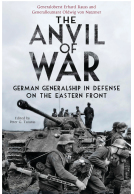Caesar's Great Success (Hardback)
Sustaining the Roman Army on Campaign

Pages: 154
Illustrations: 8 colour illustrations
ISBN: 9781473855878
Published: 18th March 2020
Last Released: 23rd July 2021
(click here for international delivery rates)
Need a currency converter? Check XE.com for live rates
Logistics have become a principle, if not a governing factor, in modern military operations. Armies need to be fed and supplied and the larger the army, the greater the logistical difficulties that have to be overcome. Two thousand years ago, when communications were far more primitive, the size of armies was limited by the difficulties of supply. It was because the Romans developed a sophisticated supply system that they were able to maintain large armies in the field – armies that conquered much of the then known world.
In Caesar's Great Success: Sustaining the Roman Army on Campaign the authors examine and detail the world's first ever fully-developed logistical supply system – the forerunner of today’s complex arrangements. This includes an examination of the sea, river and land transportation of food while on campaign, and of how the food was assembled at the operational bases and subsequently distributed.
The defence of the Roman food supplies, and especially of lines of communication, was an important factor in Caesar’s operational planning, as was interdicting the enemy’s supplies.
The eating habits of Caesar’s men are considered and what items could be obtained locally by forage and which were taken by requisition – and how much food a legionnaire was expected to carry on campaign.
With this, the nature of the actual food consumed by the legionnaires is therefore examined and sample recipes are provided with each chapter of the book to enable the reader to relive those momentous days when Caesar and Rome ruled the world.
As Featured In
HiMA, Revue Internationale d'Histoire Militaire Ancienne, n°10-2021
Overall this is an interesting approach to Caesar’s campaigns, and in particular to the war in Gaul, where I feel their arguments are at their strongest. The length of this campaign and the distance Caesar went from previous Roman territory makes this different to all of his other campaigns, and provides enough material for a convincing study of his logistics.
History of War
Read the full review here
A must-see part within the operation of the Roman legions.
Miniaturas JM
Read the full Spanish review here
A refreshingly novel history from three authors working together. Remarkably little attention is paid to one of the most important elements of military history. Logistics does not have the glamour of armies and combat but it has the capacity to lose battles and wars – Very Highly Recommended
Firetrench
Read the full review here
One of the aspects of study I enjoy most, is the practice of historical foodways. If you are of a like mind, you will want to pick up this book. About halfway through my copy of this new and interesting book that considers Caesar’s operational acumen through the lens of logistics. I am thoroughly enjoying the etymological tangents and instructions on recreating Roman cuisine. What is more important is this is the first logistics history since John Lynn’s Feeding Mars. As Lynn starts after the fall of the Roman Empire, Merrow, Von Hassel, and Starace fill a glaring historical gap and provide an interesting comparison in Chapter 7 on logistics aspects of the WWII North African campaigns and those of Caesar’s exploits in the same terrain. After having read this book, it has got me thinking about how Caesar’s use of requisition and frumentarii might inform a reduction in the “tail” of a modern expeditionary force. Back to recipes, I’m looking forward to trying some of these out.
Amazon Customer
It is hard to believe a book about Logistics during Roman times would resonate in the modern world we live in today but the authors have completely managed to do just that. One would think this would be dated information from history that does not bear any relevance to today's society. One would be incorrect. This book's information is as relevant today as it was in ancient days. I have been in Sourcing and Procurement for over 30 years and I found it an excellent resource with a wealth of knowledge. Thanks to the authors for an excellent piece of work.
Amazon Customer
If you are reading this review, you likely are already familiar with Caesar's various campaigns in Gaul, the Civil War, and Africa. Caesar's Great Success, however, is a must read to truly understand the magnitude of these accomplishments. Specifically, this book presents an altogether different tale of Caesar's exploits - not who he defeated and where, but rather how he fed and sustained his vast armies so far from Rome. Well-researched and well-written, Caesar's Great Success details the unparalleled and intriguing transportation system Caesar implemented throughout his campaigns. The book especially excels in its discussion of the food and drink favored by Caesar's legions, even providing recipes for the brave who wish to replicate a typical campaign meal. Buy this book, pour yourself a glass of posca, and enjoy!
Amazon Customer
Caesar's Great Success accomplishes something only a select few novels on the Roman world are able to do: present new, fascinating insights into an under-analyzed, yet critically important aspect of classical warfare. A deep-dive into what made victors in the theaters that Caesar's legions traversed, the novel is equal parts: a perceptive comparison of classic and modern military strategy, a remarkably concise run through of Caesar's campaigns, and an ancient recipe book. All in less than 150 pages!
Amazon Customer
As a recent college grad with a genuine interest in classical history as well as strategy, this was the perfect book to add a whole new dimension to my understanding of this period. I particularly enjoyed how this book was able to break down the role of supplies down to the individual level and continued to relate logistics down to the experience and diet of the individual soldier. Suffice to say that just beginning to understanding the incredible logistical acumen required to initiative a massive undertaking such as a Roman military campaign has limitless applications. This book will be a linchpin in my understanding of human organization and I cannot recommend it highly enough.
You won’t read Ancient military history quite the same way again after reading this book.
Beating Tsundoku
Read the full review here
The book is an interesting study on the Cesarian army, the Roman logistics that made use of a network of roads that was represented on the maps of the time with an original spatial method (let's think for example of the Peutingerian table or a common map of a subway posted in each station) and which made the movement of troops on internal lines much easier, but above all on a little discussed aspect of the military intelligence of Gaius Julius Caesar.
On The Old Barbed Wire
Read the full Italian review here
I recommend this book to anyone with an interest in Roman history; it explains the strong basis that the Romans built to conduct expeditionary warfare and give themselves freedom at the tactical, operational and strategic level. Students of logistics, both military and civilian, would also benefit from reading it. Finally, anyone with an interest in cooking might also enjoy this; some of the dishes described (and the accompanying recipes) actually look pretty good.
Army Rumour Service (ARRSE)
Read the full review here
This is a great read on the actual practicalities of running a successful military campaign – of which Caesar had his fair share, as well as running a vast Empire.
Medieval Sword School
This is a great book for living history, re-enactors and even wargammers to be honest, looking for ideas for skirmish campaigns attacking baggage trains.
Read the full review here
A good look at how he kept his army feed during battles and on travel from place to place. It looks at one aspect of Caesar and battle - food. Good for those who like this kind of topic.
NetGalley, Alexandra Roth
From a military history perspective, the book answers many questions about the logistics required to successfully deliver supplies to a large Roman army, over extremely long distances. Caesar was particularly effective in planning the various means of transportation and quantities required to feed his men and horses while on campaign in foreign lands. This has many recent parallels in modern military logistical doctrine and strategy, some of which are covered by the authors. Interestingly even though we now have the benefit of being rapidly being supplied by air, modern armies still move vast amounts of supplies by ships and trucks.
NetGalley, Peter Coxall
.
The weight of equipment and food often carried by the legionnaires was quite staggering, especially considering that after a day-long march they were expected to build a fortified camp and/or fight a battle. Even modern-day elite soldiers would find this a challenge.
Perhaps understandably, the book reads as an academic thesis, being lightened somewhat by some interesting Roman recipes. However, one recipe could have been left out of the book ‘Caesars Salad’ - absolutely nothing to do with Caesar or Roman cuisine apart from the name!
The amount of research undertaken by the three authors Alexander Merrow, Gregory Starace, and Agostino von Hassell is impressive, the list of references is immense! I would love to know how they were able to successfully and seamlessly collaborate in writing the book.
I wish I read this book earlier! As a history student, I love reading history books, especially about my favourite time periods. I've been obsessed with ancient Rome and Julius Caesar for years now and I love reading any book I can get my hands on. I found it super interesting how they described the logistics of the army. I took a class on ancient warfare and this book would have been an interesting read during that class! Kind of makes me want to learn more about military history.
NetGalley, Jia Samra
Rating: 5 out of 5 stars
NetGalley, Joshua Cartwright
Last year I read an article by an American general about the food, water and cooking requirements of the Israelites when they left Egypt and spent 40 years in the desert. The numbers were staggering - I think at one point he said that a train would have to be half a mile long pulling water tankers to ensure they all get enough liquid - each day! But there were no notes on transporting this amount of food and water aside from supernatural provision which the Bible talks about.
So when Caesar's great Success poppped up puporting to explain what soldiers in his army ate, and how it was transported I jumped at the chance to read it. Caesar is lauded for his military skill and political acumen but he is also responsible for transporting supplies for up to 57,000 men - or finding food for them if it is not available (due to raids, loss of baggage etc.)
The book is fascinating! It also even has receipies for Tack (hard bread), soldier's wine and other items. The writing style is professional but friendly in tone - it is staggeringly interesting and I will look forward to other books by the author. A book that really fills a gap in the literature that few had considered existed!
The author has delivered a really interesting insight into the logistics to support Caesar’s armies in the field. Central to the theme is the degree of self-reliance that was required of the Legions which imposed discipline and the need for basic provisioning. It is interesting to compare with books detailing these same principles of logistics supporting Edward III, the B.E.F in WWI and other eras. The basics are much the same. Conversely see the alternative when armies are not adequately provided for and are left to steal from the unfortunate inhabitants.
Michael McCarthy
Michael McCarthy. Battlefield Guide
About Alexander Merrow
Alexander Merrow studied history and German at Denison University before completing a masters’ degree in history at Cambridge University and a Ph.D. in European history at Georgetown University, writing his dissertation in the field of Modern German History. He taught European History at Georgetown University, Franklin & Marshall College, and the University of Tennessee, Knoxville. He is the co-author of numerous works of military history and, under a nom de plume, the author of numerous works of fiction.
About Gregory Starace
Gregory Starace is a Lieutenant Colonel in the Unites States Marines, who is on his nineteenth year of active duty. He has served in and travelled across Europe, Africa, the Middle East, Eurasia, and the Indian subcontinent – visiting countless Roman ruins, military locations, and museum collections along the way. He has a B.A. in History from the George Washington University, M.S. in Strategic Intelligence from the National Intelligence University, and M.A. in National Security Affairs with a focus on Africa from Naval Postgraduate School. Additionally, he is re-enactor with over 30 years of re-enacting experience across a number of periods, including Imperial Rome.
About Agostino von Hassell
Agostino von Hassell studied history at Columbia University, graduating in 1974, and attended Columbia Journalism School, graduating in 1975. He has taught on leadership in the graduate program of the John Jay College of Criminal Justice, in New York. He has written extensively on military and food history and has authored books including Military High Life: Elegant Food Histories and Recipes, Alliance of Enemies: The Untold Story of the Secret American and German Collaboration to End World War II, In Honor of America, West Point: The Bicentennial Book, Strike Force: U.S. Marine Corps Special Operations, and Warriors: The United States Marines.
Julius Caesar's Invasion of Britain Solving a 2,000-Year-Old Mystery (Hardback)
Two thousand years ago Julius Caesar came, saw and conquered southern Britain, but just where he landed and the precise routes his army marched through the south of the country have never been firmly established. Numerous sites have been suggested for the Roman landings of 55BC and 54BC, yet, remarkably, the exact locations of the first major events in recorded British history remain undiscovered – until now. After years of careful analysis, Roger Nolan has painstakingly traced not only the places where the Romans landed, but he has also discovered four temporary marching camps Caesar’s army…
By Roger NolanClick here to buy both titles for £39.98
















